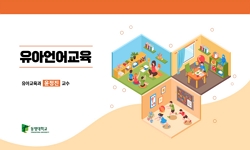Linguists have usually viewed the subject of language and development from either of two different perspectives: either psycholinguistically, in terms of the role of language in the development of the individual personality, or sociolinguistically, in...
http://chineseinput.net/에서 pinyin(병음)방식으로 중국어를 변환할 수 있습니다.
변환된 중국어를 복사하여 사용하시면 됩니다.
- 中文 을 입력하시려면 zhongwen을 입력하시고 space를누르시면됩니다.
- 北京 을 입력하시려면 beijing을 입력하시고 space를 누르시면 됩니다.
Language and Development
한글로보기https://www.riss.kr/link?id=E806723
- 저자
- 발행기관
-
발행연도
1995년
-
작성언어
English
-
KDC
305.000
-
자료형태
한국연구재단(NRF)
-
수록면
457-473
-
0
상세조회 -
0
다운로드
부가정보
다국어 초록 (Multilingual Abstract)
In this presentation, we propose first, to examine some of the components of what we call the 'development complex'. Secondly, shall attempt a description of how language policies and different levels of language competence of a society affect the achievement of the development components of that society. Finally, we shall suggest some lines of action which we consider will be effective, practicable and realistic and which will further the development of the nation-state.
Linguists have usually viewed the subject of language and development from either of two different perspectives: either psycholinguistically, in terms of the role of language in the development of the individual personality, or sociolinguistically, in terms of the role of language in the development of society, Although advocates of each of these viewpoints often claim that their point of focus has preeminence over the other, both of these aspects are generally regarded in current linguistic circles as complementary rather than mutually exclusive. Thus, although in this essay the sociolinguistic aspect of the subject is highlighted, we wish to make it clear that we are aware of and acknowledge the psycholinguistic implications of the discussion. Also, since most of the author's observations and studies have been done in the Third World environment and in the context of the emergence of new nation-states, our presuppositions and examples will naturally derive from this part of the world. However, where appropriate, reference will be made to other sectors of the world. In any case, it is hoped that our main generalisations will apply universally.
In this presentation, we propose first, to examine some of the components of what we call the 'development complex'. Secondly, shall attempt a description of how language policies and different levels of language competence of a society affect the achievement of the development components of that society. Finally, we shall suggest some lines of action which we consider will be effective, practicable and realistic and which will further the development of the nation-state.
목차 (Table of Contents)
- A View of Development
- Intellectual and Educational Development
- Economic Development
- Politico-Judiciary Development
- Socio-Cultural Development
- A View of Development
- Intellectual and Educational Development
- Economic Development
- Politico-Judiciary Development
- Socio-Cultural Development
- The Role of Language
- Concluding Suggestions
- ·NOTES
- ·SELECTED BIBLIOGRAPHY










